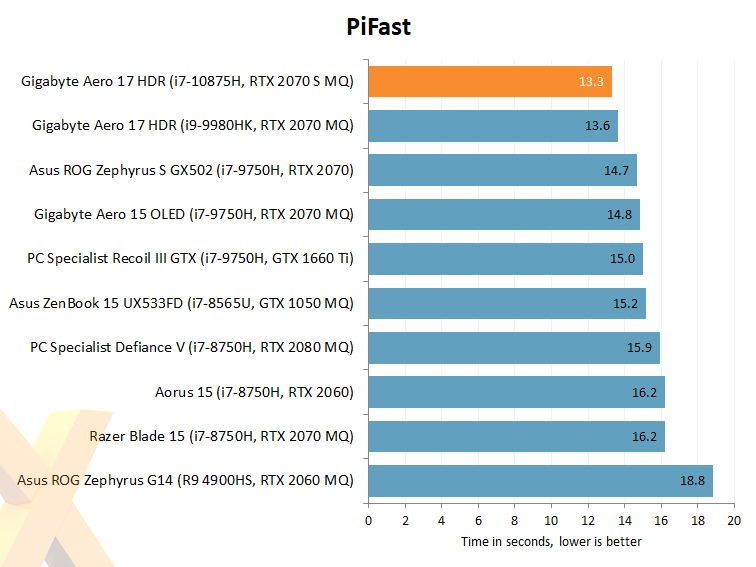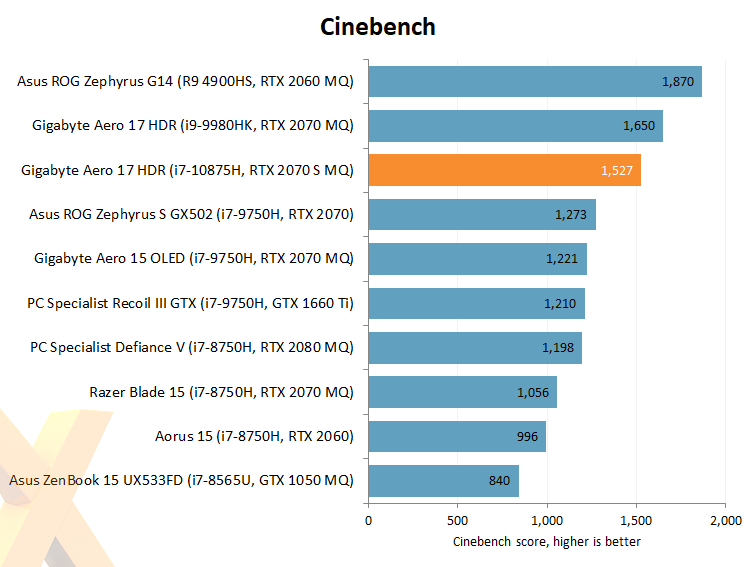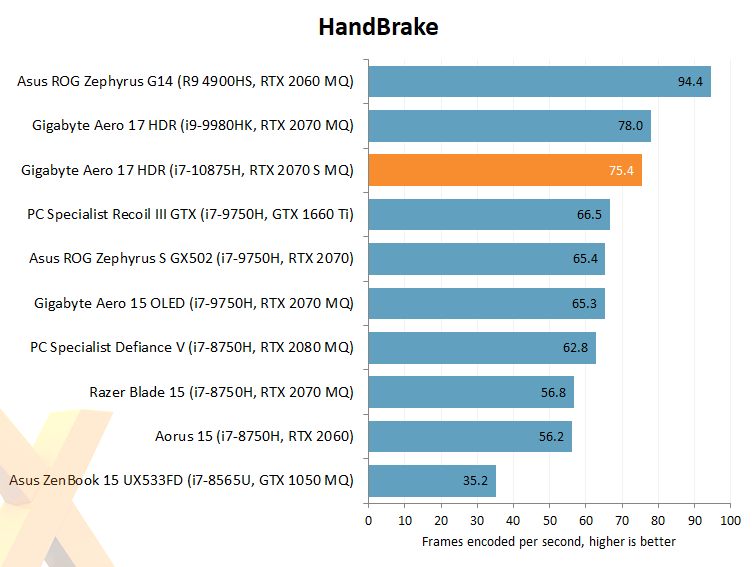Benchmarks: CPU



Starting, as always, with CPU performance, the results are interesting to say the least. In light loads and older workloads, represented by tried-and-trusted PiFast, the extra frequency headroom available to the 10th Gen Core i7 chip allows the 2020 Aero 17 HDR to occupy the top slot.
No surprises there, yet an inability to maintain those headline frequencies under prolonged load has become synonymous with high-performance laptops. In Cinebench and Handbrake, the 2020 Aero HDR, admittedly tested on one of the warmest days of the year this far, is a fraction behind last year's model, due to the chip quickly throttling to speeds as low as 3GHz. In contrast, the Ryzen 9 4900HS featured in the Asus ROG Zephyrus G14 appears noticeably more consistent.
Hoping to close the gap through optimisation, Gigabyte is keen for users to rely on its Azure-powered AI software, which is pre-installed by default. Designed to dynamically distribute power to CPU and GPU, the AI attempts to recognise the current workload and boost performance accordingly. Our prior testing has shown that the AI tech can help maintain higher frequencies, but tends to do so at the expense of increased fan noise.
That assessment remains true of this 2020 model. Turning AI on and re-running the Cinebench test returns a superior score of 1,672, but the gradual rise in noise output is noticeable.


